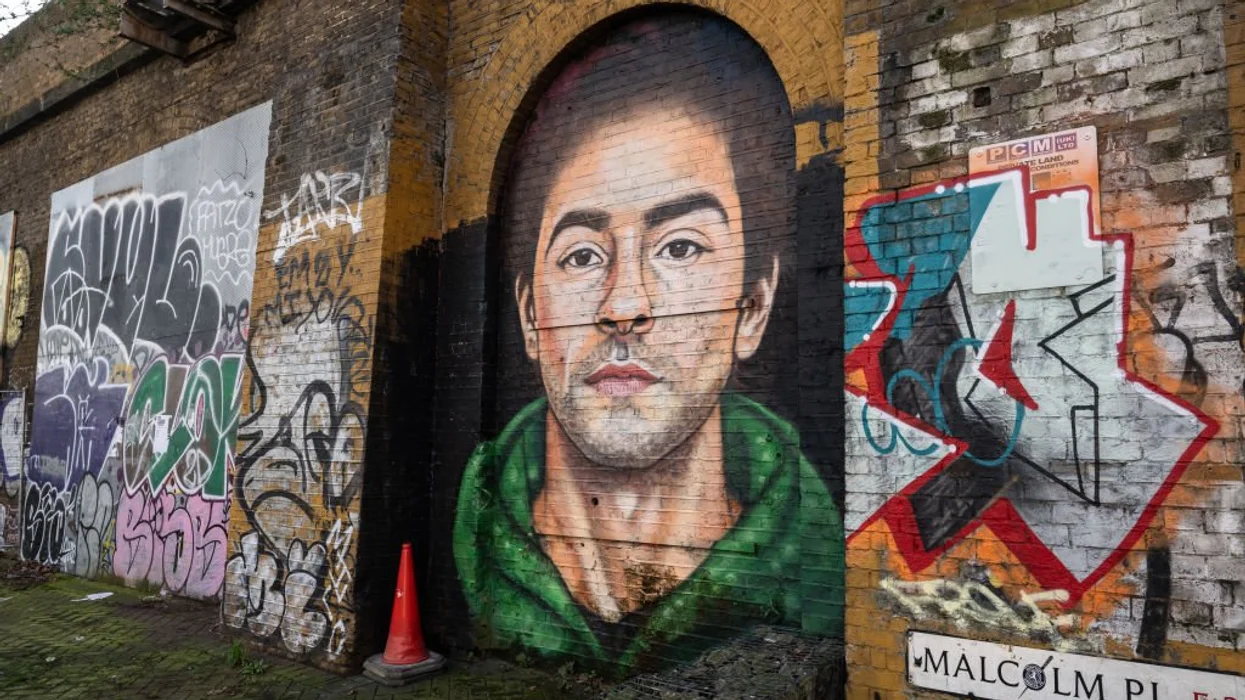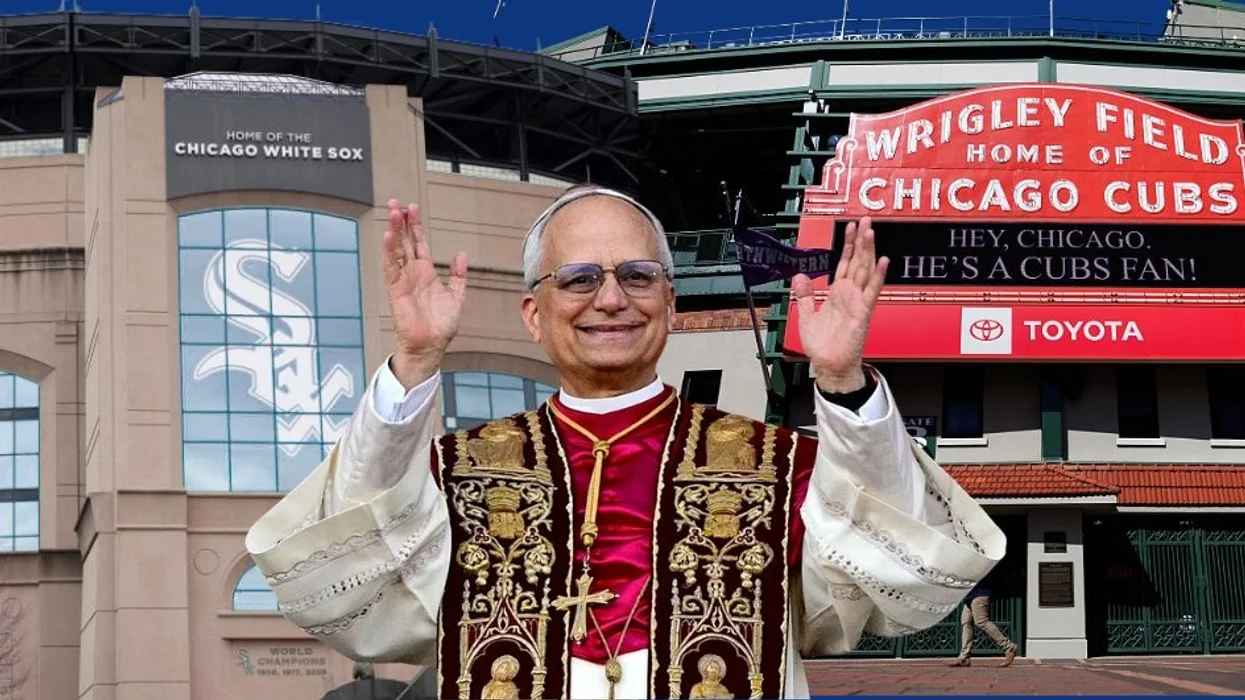
© 2025 Blaze Media LLC. All rights reserved.
Double Shot of Dumb': Politico Editor's Tweet About the Release of Five Taliban Prisoners Stuns the Internet
June 02, 2014
"I'm seriously questioning why we didn't release the 5 terrorists into @blakehounshell's custody."
Politico Magazine editor Blake Hounshell was mocked relentlessly on Twitter after he questioned why people would consider the five Taliban prisoners recently released from Guantanamo Bay “dangerous.”
“What's the argument that these five Taliban guys are so dangerous? Are they ninjas? Do they have superpowers?” Hounshell wrote.
CNN has a brief overview of the five Gitmo prisoners who were released in exchange for Army Sgt. Bowe Bergdahl over the weekend:
Khair Ulla Said Wali KhairkhwaKhairkhwa was an early member of the Taliban in 1994 and was interior minister during the Taliban's rule. He hails from the same tribe as Afghan President Hamid Karzai and was captured in January 2002. Khairkhwa's most prominent position was as governor of Herat province from 1999 to 2001, and he was alleged to have been "directly associated" with Osama bin Laden. According to a detainee assessment, Khairkhwa also was probably associated with al Qaeda's now-deceased leader in Iraq, Abu Musab al Zarqawi. He is described as one of the "major opium drug lords in western Afghanistan" and a "friend" of Karzai. He was arrested in Pakistan and was transferred to Guantanamo in May 2002. During questioning, Khairkhwa denied all knowledge of extremist activities.
Mullah Mohammad Fazl
Fazl commanded the main force fighting the U.S.-backed Northern Alliance in 2001, and served as chief of army staff under the Taliban regime. He has been accused of war crimes during Afghanistan's civil war in the 1990s. Fazl was detained after surrendering to Abdul Rashid Dostam, the leader of Afghanistan's Uzbek community, in November 2001. He was wanted by the United Nations in connection with the massacre of thousands of Afghan Shiites during the Taliban's rule. "When asked about the murders, he did not express any regret," according to the detainee assessment. He was alleged to have been associated with several militant Islamist groups, including al Qaeda. He was transferred into U.S. custody in December 2001 and was one of the first arrivals at Guantanamo, where he was assessed as having high intelligence value.
Mullah Norullah Noori
Noori served as governor of Balkh province in the Taliban regime and played some role in coordinating the fight against the Northern Alliance. Like Fazl, Noori was detained after surrendering to Dostam, the Uzbek leader, in 2001. Noori claimed during interrogation that "he never received any weapons or military training." According to 2008 detainee assessment, Noori "continues to deny his role, importance and level of access to Taliban officials." That same assessment characterized him as high risk and of high intelligence value.
Abdul Haq Wasiq
Wasiq was the deputy chief of the Taliban regime's intelligence service. His cousin was head of the service. An administrative review in 2007 cited a source as saying that Wasiq was also "an al Qaeda intelligence member" and had links with members of another militant Islamist group, Hezb-e-Islami Gulbuddin. Wasiq claimed, according to the review, that he was arrested while trying to help the United States locate senior Taliban figures. He denied any links to militant groups.
Mohammad Nabi Omari
Omari was a minor Taliban official in Khost Province. According to the first administrative review in 2004, he was a member of the Taliban and associated with both al Qaeda and another militant group Hezb-e-Islami Gulbuddin. He was the Taliban's chief of communications and helped al Qaeda members escape from Afghanistan to Pakistan. Omari acknowledged during hearings that he had worked for the Taliban but denied connections with militant groups. He also said that he had worked with a U.S. operative named Mark to try to track down Taliban leader Mullah Omar.
What's the argument that these five Taliban guys are so dangerous? Are they ninjas? Do they have superpowers? https://t.co/kLW7RW3cgX
— Blake Hounshell (@blakehounshell) June 3, 2014Though it’s still possible Hounshell was attempting humor with his tweet about the Taliban prisoners, his responses to others seem to suggest otherwise.
When a Twitter user reminded him that they were “veteran commanders” in the Taliban, Hounshell replied, “Eh. They have been off the battlefield for years; surely plenty of veteran commanders out there.”
@justinjm1 @elilake Eh. They have been off the battlefield for years; surely plenty of veteran commanders out there.
— Blake Hounshell (@blakehounshell) June 3, 2014When the Daily Beast’s Eli Lake confronted him with the fact that then-Secretary of Defense Leon Panetta and Director of National Intelligence James Clapper felt it was too dangerous to release the prisoners in 2012, Hounshell sarcastically responded, “and what about the ninja thing, Eli?”
@EliLake @justinjm1 and what about the ninja thing, Eli?
— Blake Hounshell (@blakehounshell) June 3, 2014Hounshell eventually conceded that the release of the prisoners was a “great propaganda opportunity” for the Taliban.
@EliLake @justinjm1 Sure, great propaganda opportunity.
— Blake Hounshell (@blakehounshell) June 3, 2014Read some of the mockery that ensued on Twitter:
I'm seriously questioning why we didn't release the 5 terrorists into @blakehounshell's custody.
— Erin (@sqwerin) June 3, 2014@RBPundit @blakehounshell This is going to make me break my twitter rule on swearing.
— C. Irwin (@Bookwormdearlor) June 3, 2014Politico guy @blakehounshell claims terrorist leaders are only dangerous when they're ninjas or have superpowers: https://t.co/k5x0rGQ07P
— Starz and Strypz (@StarzandStrypz) June 3, 2014@blakehounshell you're asking why radical jihadists who are wanted for war crimes are dangerous...
— Alicia Smith (@Alicia_Smith19) June 3, 2014@blakehounshell, why don't we just leave u in a room w/ these 5 guys and u can tell us, Blake.
— Tailgunner Rich (@wizguy123) June 3, 2014Exhibit A: Double shot of dumb—>“@blakehounshell: What's the argument that these five Taliban guys are so dangerous? https://t.co/Fn1tPsL0PC”
— I'm Not (@TWINappropriate) June 3, 2014"Oh yeah, @chrislhayes? Watch this" -@blakehounshell
— Anthony Bialy (@AnthonyBialy) June 3, 2014Terrorists are dangerous.
"I disagree." -@blakehounshell
— L (@OrwellForks) June 3, 2014And that's barely scratching the surface.
To learn more about the five Gitmo prisoners released, read CNN's report here.
Want to leave a tip?
We answer to you. Help keep our content free of advertisers and big tech censorship by leaving a tip today.
Want to join the conversation?
Already a subscriber?
more stories
Sign up for the Blaze newsletter
By signing up, you agree to our Privacy Policy and Terms of Use, and agree to receive content that may sometimes include advertisements. You may opt out at any time.
© 2025 Blaze Media LLC. All rights reserved.
Get the stories that matter most delivered directly to your inbox.
By signing up, you agree to our Privacy Policy and Terms of Use, and agree to receive content that may sometimes include advertisements. You may opt out at any time.


